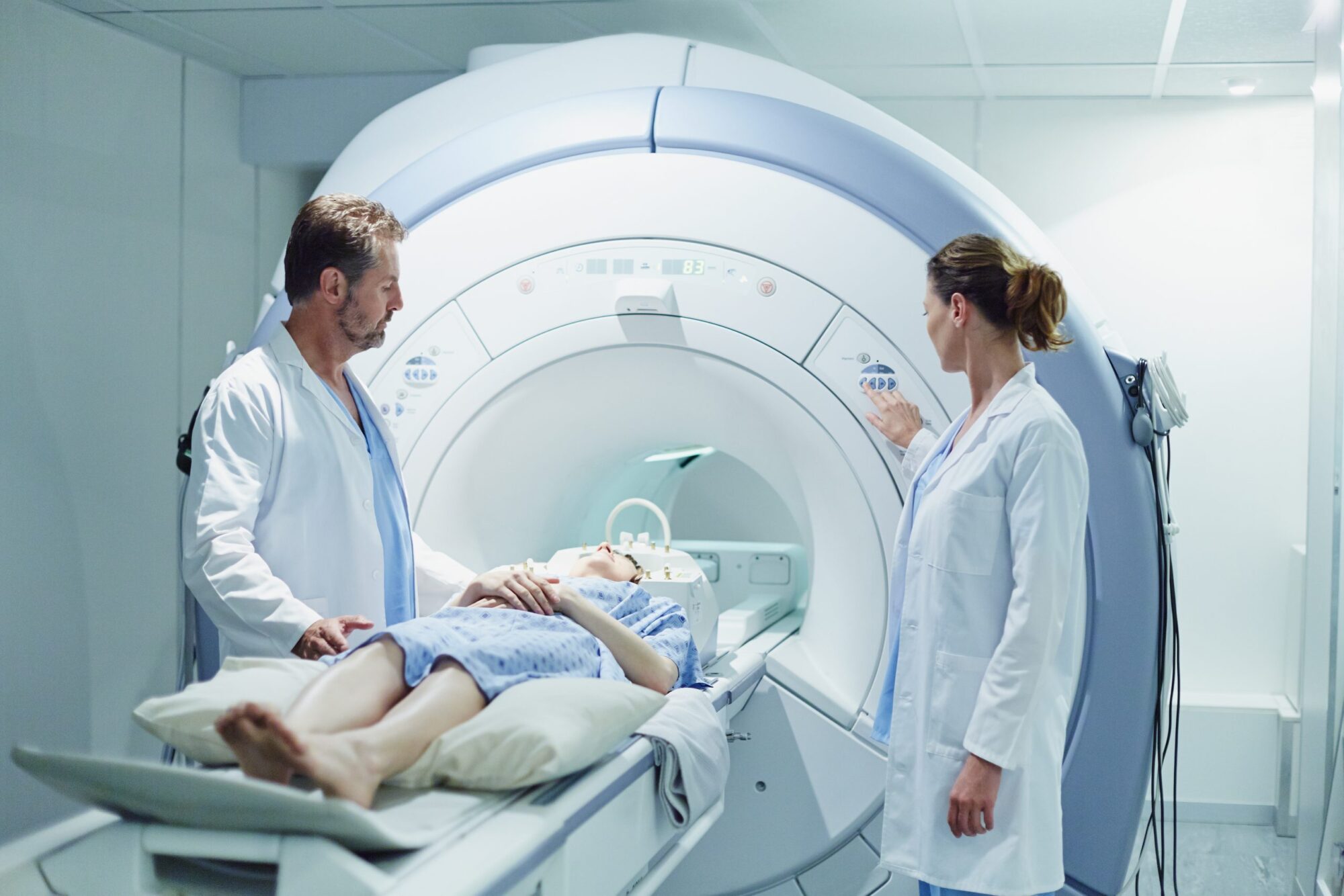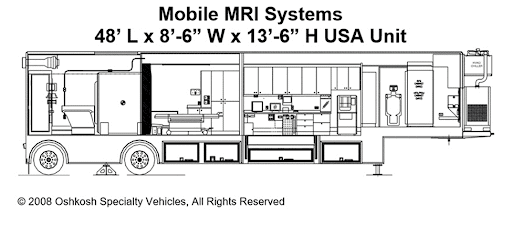Mobile MRIs are at the forefront of diagnostic technology, offering businesses and healthcare providers a versatile solution to meet the imaging needs of patients, no matter where they are located. It’s essential to clarify the significance of Mobile MRI units for businesses and address common inquiries to underline just how beneficial a unit could be. You can find answers listed below, as well as contact information to start the process of renting an MRI unit for your company:
What is a Mobile MRI?
MRI stands for Magnetic Resonance Imaging. It is a medical imaging technique that uses strong magnetic fields and radio waves to create detailed images of the organs and tissues inside the body. MRI is non-invasive and does not use ionizing radiation (unlike X-rays or CT scans), making it safer in certain situations. It is commonly used to diagnose and monitor a wide range of medical conditions, including injuries, diseases, and abnormalities in the brain, spine, joints, and other parts of the body.
How Does a Mobile MRI Work?
A Mobile MRI works on the same principles as a traditional MRI machine but is designed to be mobile and transportable to different locations such as hospitals, clinics, or even remote areas. The standard mobile MRI unit, which is widely recognized, typically measures 48’ L x 8’ -6” W x 13’ -6” H. However, there are also specialty trailers designed for specific needs that are larger, such as those measuring 12’ x 60’. The receiving end requires a female RussellStoll Receptacle to correctly power the mobile unit. It operates at 480 volts, 3-phase, drawing 150-200 power amps. Mobile MRIs are designed to meet the same stringent safety and quality standards as fixed MRI machines to ensure accurate diagnostic imaging.
What Are the Benefits of Mobile MRI?
Mobile MRI units offer several benefits, including:
- Providing imaging services to remote areas, smaller clinics, or hospitals without MRI facilities. This improves access to diagnostic services for patients who may otherwise have difficulty traveling and patient transfers between facilities which saves time and resources.
- Deploying quickly in response to emergencies, such as natural disasters or sudden healthcare needs, allows healthcare providers to maintain continuity of care.
- Minimizing logistical challenges associated with travel to fixed imaging centers.
- Providing a more economical option for healthcare providers than building and maintaining a permanent MRI facility, especially in areas with fluctuating demand for imaging services.
- Equipped with advanced imaging technology comparable to stationary MRI machines, ensuring high-quality diagnostic images for accurate patient diagnosis and treatment planning. Mobile MRI units are often designed with patient comfort in mind, offering amenities such as climate control and noise reduction technologies to improve the overall imaging experience.
What is the Difference Between a Closed, an Open, and a WideBore MRI?
Closed MRI: These are traditional MRI machines with a cylindrical, tube-like shape. The patient lies on a table that slides into the bore, surrounded by a strong magnetic field. The bore size for a closed MRI is 60cm.
Open MRI: These have a more open design with a larger space around the patient. Instead of a tunnel, the machine has two flat magnets above and below the patient, creating a more spacious environment during the scan.
Widebore MRI: This is a type of MRI machine with a larger bore or tunnel diameter compared to traditional closed MRI machines. The “bore” refers to the tunnel-like structure through which the patient passes during the scan. Additionally, the bore size for a Widebore MRI is 70cm opening. Healthcare providers often suggest using a Widebore MRI for patients with claustrophobia or larger body size. These MRI machines maintain high image quality without compromise, accommodating patient comfort and diverse anatomies effectively.
How Long Does a Mobile MRI Scan Take?
The duration of a Mobile MRI scan can vary depending on several factors, including the specific imaging protocol, the part of the body being scanned, and the patient’s condition. Generally, a typical MRI scan can take anywhere from 15 minutes to an hour or more. Factors such as the need for contrast dye injections or additional sequences for detailed imaging can extend the scanning time.
Mobile MRI units typically operate under similar time frames as stationary MRI machines in terms of the actual scanning process. However, additional time may be required for setup and patient preparation before the scan begins. Efficient scheduling and coordination by healthcare providers help ensure that Mobile MRI services are delivered promptly and effectively to different locations.
Explore Mobile MRI Options with Platinum Mobile Imaging
When you select Platinum Mobile for your Mobile MRI needs, you gain from our dedication to exceptional service and industry expertise. We provide superior customer support and a comprehensive array of services to efficiently meet your imaging needs. Count on Platinum Mobile for dependable, high-quality Mobile MRI services customized to your specific needs. For more information or to receive a quote, please contact us.
We’re here to assist you.



